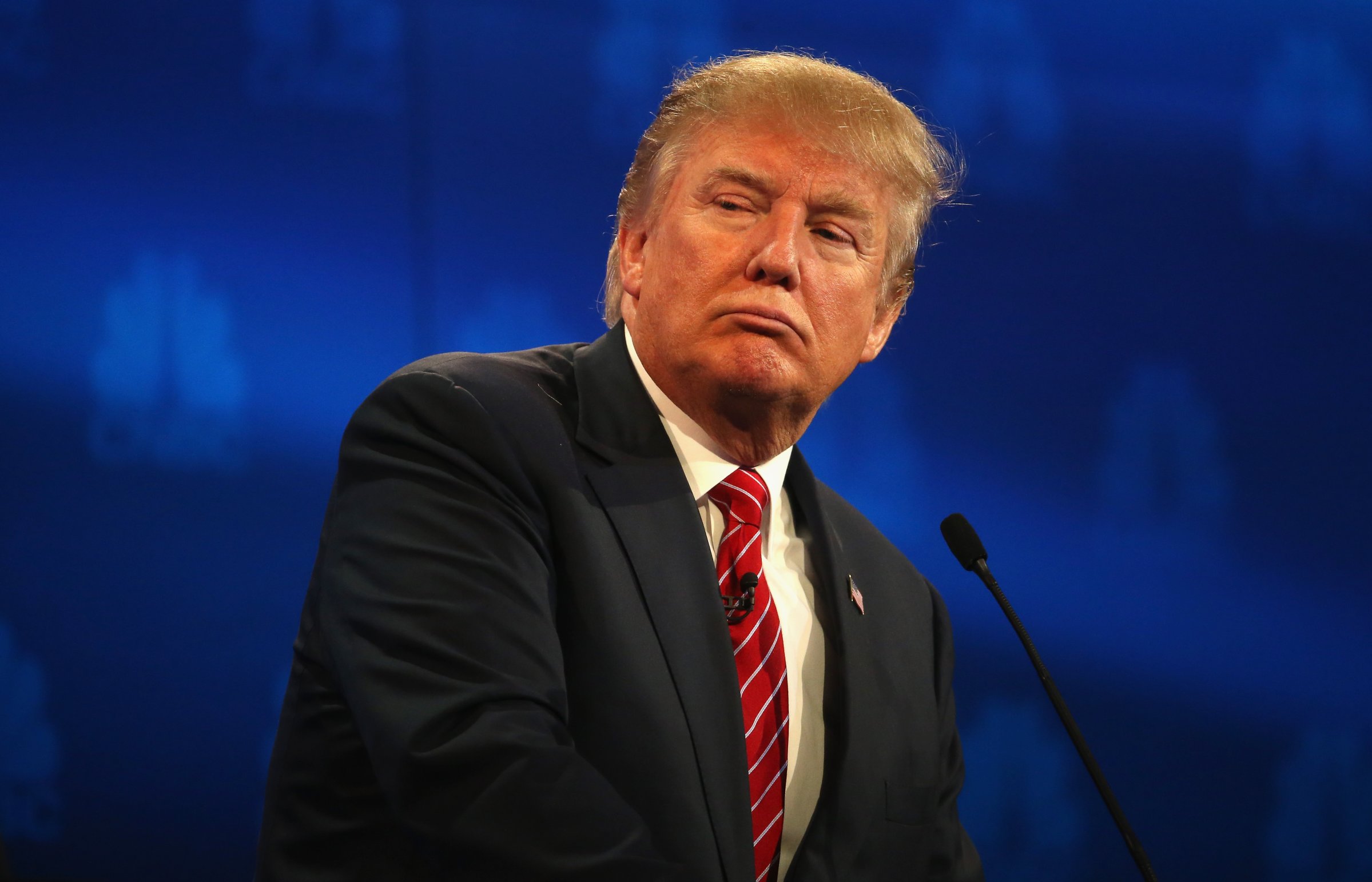
Donald Trump’s repeated demands that U.S. District Judge Gonzalo Curiel, who is of Mexican heritage, recuse himself from the fraud cases against Trump University, have no legal or constitutional merit.
Indeed, they draw from a long-standing but failed legal playbook used against minority judges.
Trump argues that his campaign’s hardline position on illegal immigration—namely, the presumptive Republican nominee’s repeated promise to seal off the the border between Mexico and the U.S.—creates an “absolute conflict” with the judge, who Trump described as a “Mexican” appointed by President Obama. Curiel was born in Indiana; his parents were Mexican immigrants.
“I’m building a wall,” Trump told the Wall Street Journal Thursday. “It’s an inherent conflict of interest.”
Legal scholars roll their eyes at Trump’s line of attack. There is nothing in the U.S. Constitution—and no U.S. law, regulation or code of judicial conduct—that suggests that a judge must recuse him or herself because of race, gender, ethnicity, sexual preference, or any other aspect of someone’s personal identity. After all, no judge is free from these categories.
“The notion that a judge has to recuse him or herself because of racial makeup, religious background, gender or ethnicity—it’s all just nonsense,” Stephen Burbank, a professor for the administration of justice at the University of Pennsylvania Law School told TIME. “It’s absolute nonsense.”
Arthur Hellman, an expert on federal judicial ethics at the University of Pittsburgh’s law school said that if that were indeed a standard, it would result “in chaos.” If a judge could be forced to step aside merely because of membership in a minority group of some kind, judges would constantly be removed from cases, he told TIME.
U.S. Supreme Court justices Clarence Thomas and Sonia Sotomayor could be feasibly barred from weighing in on cases concerning civil rights. Chief Justice John Roberts, a Catholic, could be forced to recuse himself from any case having to do with religion.
The idea that judges must put aside their personal identities and appeal instead to what’s known as “judicial temperament,” Hellman explained, has long been the bedrock of the U.S. judicial system.
That idea was solidified in 1974 when Judge Leon Higginbotham, an African-American district judge, refused to recuse himself from a case that had to do with racial discrimination. Higginbotham, who was himself regularly the object of racial bias, argued that his personal experience should not be disqualifying and later issued what is now considered a universally accepted opinion on the matter.
“I concede that I am black. I do not apologize for that obvious fact. I take rational pride in my heritage, just as most other ethnics take pride in theirs,” he wrote. “However, that one is black does not mean, ipso facto, that he is anti-white; no more than being Jewish implies being anti-Catholic, or being Catholic implies being anti-Protestant.” Demanding recusals based on judges’ personal identity, he concluded, would create a “double standard within the federal judiciary.”
But Trump’s strategy to discredit Curiel because of his ethnicity also draws on a long and storied legal playbook employed by lawyers on both sides of the aisle.
In 1998, lawyers in a case concerning a commercial breach of contract attempted to force federal Judge Denny Chin, who is of Asian descent, to recuse himself because some of the people in the case were Asian-American, and the defendants had been portrayed in the press as anti-Asian. The lawyers also argued that because Chin had been appointed by President Bill Clinton, he was biased since the case touched on conduct by the Democratic National Committee. An appeals court later upheld sanctions against one of the lawyers in the case.
In 2011, lawyers opposed to legalizing gay marriage argued that federal judge Vaughn Walker’s decision to strike down the marriage ban in California should be vacated because Walker, who is gay and in a long-term relationship with a man, stood to gain from his own ruling.
In 2014, federal Judge Paul Borman became the latest in a long series of Jewish judges who have been asked to recuse themselves in cases that have to do with Palestinians.
Prior to his appointment to the San Diego district court in 2012, Curiel was assistant U.S. attorney in California, where he faced death threats while successfully prosecuting the Mexican drug cartel run by Arellano Felix. Trump has repeatedly called the judge “biased,” a “Donald Trump hater,” and “a total disgrace.”
Curiel has not responded to Trump’s attacks. Federal judges are bound to a code of conduct restricting them from “mak[ing] public comment on the merits of a matter pending or impending in any court” or weighing in on candidates for public office.
Trump’s lawyers have not formally filed a motion to remove Judge Curiel in the fraud case involving Trump University. If they choose to do so, it’s extremely unlikely that it would be successful, Burbank said.
Kayleigh McEnany, a Harvard Law student who acts a public representative for Trump, said as much. Her candidate of choice “should have not mentioned the judge’s heritage,” she said on CNN Thursday. “There is no a viable argument there that because of his heritage that he is somehow biased.”
More Must-Reads from TIME
- Donald Trump Is TIME's 2024 Person of the Year
- Why We Chose Trump as Person of the Year
- Is Intermittent Fasting Good or Bad for You?
- The 100 Must-Read Books of 2024
- The 20 Best Christmas TV Episodes
- Column: If Optimism Feels Ridiculous Now, Try Hope
- The Future of Climate Action Is Trade Policy
- Merle Bombardieri Is Helping People Make the Baby Decision
Write to Haley Sweetland Edwards at haley.edwards@time.com